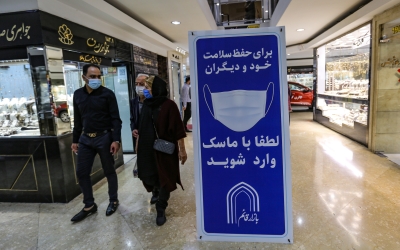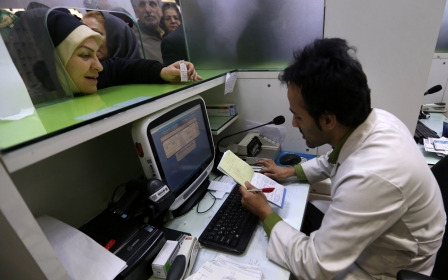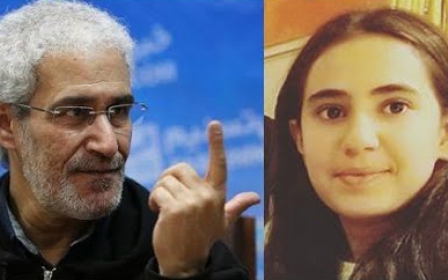Iranian press review: Lockdowns lead to marriages

Lockdowns lead to marriages
Marriage rates have increased in Iran with the spread of coronavirus, despite ongoing restrictions on gatherings and holding ceremonies, according to the Statistical Centre of Iran.
During the first four months of the current Iranian year, which began on 20 March, over 200,000 marriages were registered in the country, which is about 32,000 more than were registered in the same period last year, Shahrvand Online reported.

Alaas Mozafari, director of Iran’s syndicate of marriage registration centres, told Shahrvand that the increase in marriage rates among young couples is a result of restrictions on large wedding ceremonies.
In Iran, marriage ceremonies start a few weeks before the main wedding party and continue a while after. This tradition has made wedding ceremonies expensive, and many young couples resort to borrowing money or applying for wedding loans to cover the expenses.
However, since March, following the onset of the pandemic in Iran, all wedding halls have been shut down, and the government has imposed a ban on large gatherings.
These restrictions have helped young couples skip costly ceremonies and start living together following intimate small ceremonies.
Iran is the country worst hit by the coronavirus in the Middle East, with over 36,900 people dead due to infection.
Khamenei representative says Holocaust “a big historic lie”
Iranian ultra-conservative journalist Hossein Shariatmadari had denied the Holocaust, calling the systematic killing of around six million Jews "a big historic lie".
Shariatmadari is a close aide to Iran’s supreme leader and his appointed managing editor to the conservative Kayhan daily.
“There are a lot of undeniable documents that show that the Zionist myth [of the Holocaust] is a made up story, and the fearful worriedness of the West about investigating the Holocaust is the most eloquent evidence that proves it is fake,” Shariatmadari wrote in an opinion piece for Fars news agency.
“If [an independent] investigation could prove that the Holocaust had really took place, Western leaders and the Zionists would have encouraged everyone to study this case,” he added, referring to the Holocaust denial law in some Western countries that bans the refutation of the genocide.
Shariatmadari wrote his opinion piece as an explanation to a short message by Ayatollah Ali Khamenei to the young people of France.
On 28 October, in condemnation of French President Emmanuel Macron’s support for the publication of cartoons ridiculing the Prophet Muhammad, Khamenei urged French youth to ask two questions from their president.
“Ask your President why he supports insulting God’s Messenger in the name of freedom of expression,” read the message published in Farsi, English and French on Khamenei’s official website.
“Why is it a crime to raise doubts about the Holocaust? Why should anyone who writes about such doubts be imprisoned while insulting the Prophet (pbuh) is allowed?” he added.
Meanwhile, ILNA news agency reported that Khamenei’s French Instagram account was suspended after his post was published.
Rape, torture and child trafficking in rehab centres
Numerous media reports have revealed a large range of abuses taking place in expensive and licensed private drug rehabilitation centres in Iran.
According to local media, torture, violence, sexual abuse, forced detention, forced labour and child trafficking are routine in some of these facilities.
In an investigative report, the Khorasan daily interviewed people who have survived their stints at two women's rehabilitation centres that were shut down in the province of Khorasan Razavi.
One former drug user said the owners of the rehab centre where he was treated were always informed about the time when government investigators planned to pay an unannounced visit to the centre.
Another woman told the daily that those who were kept in the centre, were not allowed to contact their families.
Conversations between addicts and their psychosocial advisors were recorded and used by managers to exert pressure on them for sex work and forced labour.
According to the survivors of these institutions, men could freely enter the centres to choose female former addicts for temporary marriage, or sigha, and young addicts were sent to private parties to work as escorts.
Sigha is an agreement between a man and a woman to get married for a specific time in order to have sex legally in a country that bans extramarital sex.
Another survivor explained that her family paid 130 million Iranian rials (about $480) to a rehab centre for her treatments. However, once admitted, she was beaten so hard that she lost her tooth and was also forced to work as a domestic worker in the house of the head of the centre.
In another report, a man who was saved from a private centre after the police shut it down, spoke about his experience of attempting to escape.
“After I escaped from the camp, their security personnel found me and returned me to the centre,” he said.
“As a punishment, first they tied my neck to a dog for some days, and then when they transferred me to the hall of the addicts, my neck was chained to the wall for 45 days.”
Female athletics champion practices in agricultural fields
Iranian hammer throw champion Zahra Arab Rostami illustrated the poor situation in which she is practicing for the 2021 World Athletics U20 Championships in an interview with ISNA news agency.

“I was practicing in a football field, but it was turned into an agricultural field and I cannot use it anymore,” she said.
“I am now practicing in an empty field in the suburbs of the city of Varamin, but here I have no safety net, nor do I have the standard hammer that weighs four kilograms.”
ISNA also reported that the young Iranian champion continues her training without necessary equipment, such as special gloves and shoes for hammer throwing.
Iranian female champions face various restrictions and limits by the government.
There are bans in effect on Iranian sportswomen preventing them from participating in competitions like kickboxing, Muay Thai and bodybuilding.
*The Iranian press review is a digest of reports that are not independently verified as accurate by Middle East Eye
Middle East Eye delivers independent and unrivalled coverage and analysis of the Middle East, North Africa and beyond. To learn more about republishing this content and the associated fees, please fill out this form. More about MEE can be found here.




